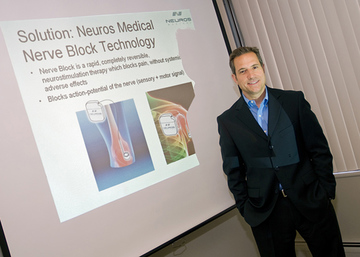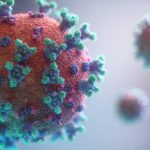There’s a lot we still don’t know about the power of genetic testing.
For one thing, it’s becoming more powerful than ever expected. Already, patients can get gene-based information about their cancer risk, for instance, as well as details about genetic disorders that might impact their children, autism diagnoses, and more.
What will all this mean for patients?
How will they be getting that news?
How will they handle it?
According to a recent article in Spectrum, the leading publication focused on advancements in autism research, the “human side” of this technology is already getting attention among doctors and therapists:
“Autism has a large genetic component, and the number of genetic variants implicated in the condition is increasing. People with autism may have their genomes sequenced as part of a study or for diagnostic purposes. And this process may reveal variants known to increase their risk for entirely different conditions.
“This bonus information, or ‘incidental findings,’ may have clinical value if it points to treatments. Such information can even be harmful — say, if it indicates that a person has an untreatable, devastating condition or if an insurance company uses it as a reason to deny coverage.
“As a society, we need to establish guidelines on when clinicians should share incidental findings, whether an individual gets to choose to hear the results, and how best to support those who receive the information.
“In one of the first studies of its kind, we have tapped into 35 people’s reactions to the reveal of their entire genomes. We learned that the best way to boost the benefits, and reduce the harm, of incidental genetic findings is to provide adequate information and support.
“Faster, cheaper DNA sequencing is moving genetic analysis outside the clinic and into people’s homes. A concomitant explosion in tools to interpret genetic data is further democratizing access to genomic information. As a society, we have an obligation to figure out how best to support this process as well.”
This is an important conversation to have, because advanced genetic testing will be widespread before we know it.
Are we doing enough to consider the whole patient?
Consider the fact that genetic testing is on track to exceed $10 billion in the next several years. By 2022 there will be nearly 70,000 different genetic tests for more than 10,700 different conditions available on the market. These will be conducted on 16,226 different genes in nearly 500 labs.
Genetic testing isn’t, for the most part, a hands-off process. Many of the conditions being tested for are serious and life threatening, and care must be taken to both walk patients through the process while also delivering the news in a caring, holistic way. These aren’t test results that anyone wants to receive in an impersonal email.
That’s why genetic counseling is one of the fastest-growing fields in healthcare.
Counseling is needed before and/or after testing for the estimated 10 million-plus patients who are being tested around pregnancy planning, cancer diagnosis, heart disease risk, neurological conditions, pediatric conditions, medication management, preventative care and more.
The answer may lie in digital healthcare.
As of 2017, roughly seven million patients receive some level of medical care via telemedicine — which includes digital, online, mobile, video and other healthcare delivery technologies — representing a 20x increase in just the last five years.
GeneMatters is working to bring this technology to the genetic counseling market, offering remote access to on-demand, expert genetic counselors. On top of this, the company also has a SaaS platform that significantly reduces the time it takes for a counselor to complete a session by automating many of the repetitive tasks associated with counseling an individual patient, thereby increasing the number of patients each counselor can advise.
In this way, the company is offering a cost-effective, scalable solution to the critical need for more genetic counseling support.
Demand for genetic testing is growing substantially, and genetic counseling is vital for patients to understand their testing results. GeneMatters is creating a software/telehealth platform to optimize the reach of the genetic counselors we have today to help meet this increasing demand and offer providers a solution to scale their services over time.






